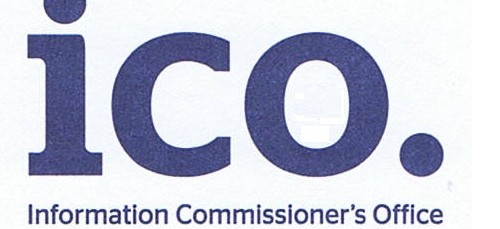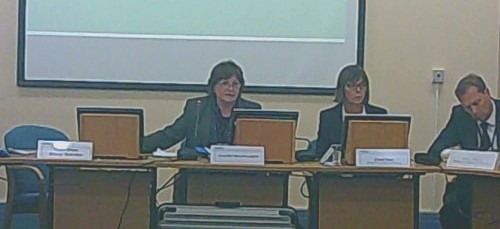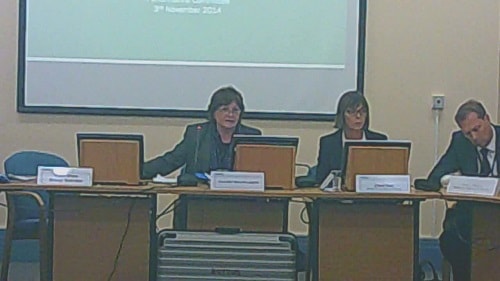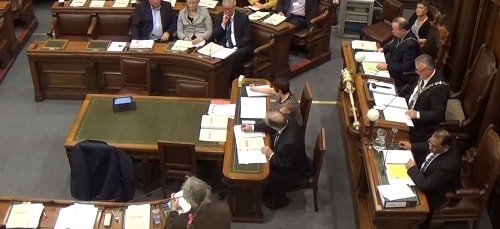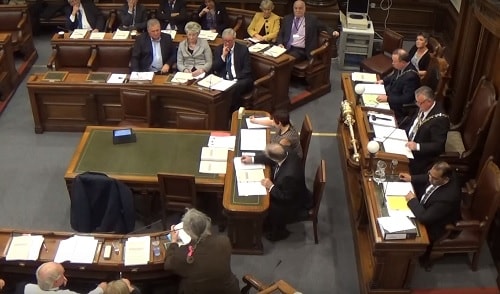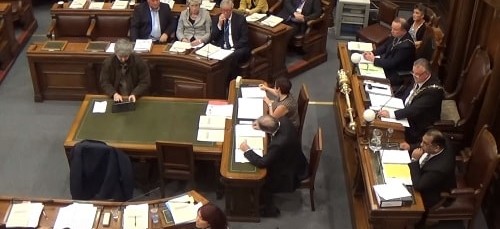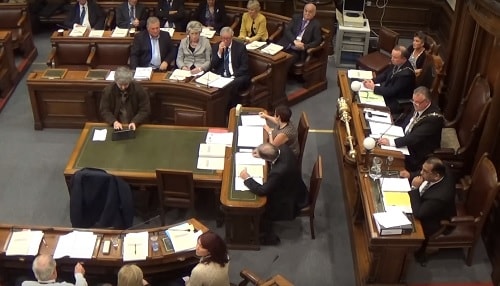After 2 years, 10 months and 3 ICO decision notices will Wirral Council finally provide a response to a FOI request about councillors?
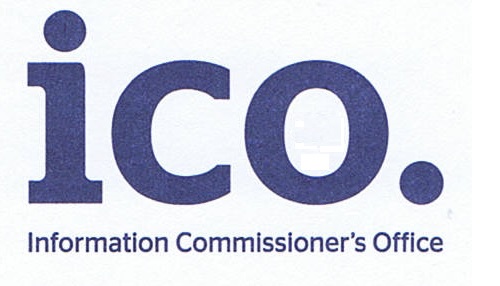
Last week I received another decision notice from the Information Commissioner’s Office through the post about this freedom of information act request I made to Wirral Council on the 29th March 2013.
Yes it’s now 2016, but this request has already been the subject of decision notice FS50509081 (dated 8th September 2014) (9 pages) and decision notice FS50569254 (dated 29th July 2015) (13 pages).
This decision (decision notice FS50596346) dated the 25th January 2016 is 11 pages long.
Frankly, after two years and ten months of arguing over this request I doubt (although this is just my opinion) that either Wirral Council will want to appeal the decision to the First-tier Tribunal (Information Rights). Although one can never quite tell with Wirral Council.
Out of the remaining four parts to this request, Wirral Council released the minutes of the Safeguarding Reference Group meeting of the 19th April 2011 a fortnight before the decision notice is dated.
So the decision notice relates to minutes of a meeting of the Headteachers and Teachers Joint Consultative Committee, minutes of a meeting of the Members’ (Members’ means councillors) Training Steering Group and minutes of a meeting of the Members’ Equipment Steering Group.
All these committees met behind closed doors and had councillors appointed to them.
The information in the minutes of the meetings of the last two groups are about training of councillors, use of electronic equipment, developing the Council of the Future, spending, service delivery models and proposals for improvement and potential change.
Surjit Tour made the decisions that releasing this information would be "prejudicial to the effective conduct of public affairs". There’s a long bit of the decision notice that goes into ICO’s assessment of the public interest test. ICO disagrees with Surjit Tour with regards to two out of the three sets of minutes requested. ICO’s view is that the public interest test weighs in favour of disclosure of the minutes of the Members’ Training Steering Group and minutes of the meeting of the Members’ Equipment Steering Group.
They do however agree with Surjit Tour over the minutes of the Headteachers’ and Teacher’s Joint Consultative Committee, although I’ll point out I find their arguments over a "chilling effect" over what was said at a meeting three years ago rather strange!
Below I include a copy of the decision notice (above is a summary). Although it states I didn’t submit public interest arguments, I did in a document marked "reasons for appeal" (in fact I have an email from the case officer referring to it). However the reasons for appeal have seemingly either not been read or ignored by the person writing the decision notice.
The result of the decision notice is that Wirral Council (or I) can appeal the decision within 28 days of the decision notice to the First-tier Tribunal (Information Rights) or if the decision is accepted they have to respond by providing the minutes relating to the meetings of the Members’ Training Steering Group and of the Members’ Equipment Steering Group within 35 days.
A copy of the text of the decision notice is below (although there may be some minor formatting changes between this web version and the print version). Edited on 15/2/2016 The decision notice (FS50593646) has now been published on ICO’s website.
Reference: FS50596346
Freedom of Information Act 2000 (FOIA)
Decision notice
Date: 25 January 2016
Public Authority: Wirral Metropolitan Borough Council
Address: Wallasey Town Hall
Brighton Street
Wallasey
Wirral
CH44 8ED
Complainant: John Brace
Address: Jenmaleo
134 Boundary Road
Bidston
Wirral
CH43 7PH
Decision (including any steps ordered)
1. The complaint concerns a request for the minutes of three separate committee meetings. Wirral Metropolitan Borough Council (‘the Council’) has refused to release this information. The Council says it is exempt under section 36 of the FOIA (prejudice to the effective conduct of public affairs) and that the public interest favours the information being withheld.
2. The Commissioner’s decision is that sections 36(2)(b)(i) and (ii) have been correctly applied to the requested information and that the public interest favours withholding some of the information (item 15). However he finds that the public interest favours releasing the remainder of the information.
3. The Commissioner requires the public authority to take the following step to ensure compliance with the legislation:
1
Reference: FS50596346
4. The public authority must take this step within 35 calendar days of the date of this decision notice. Failure to comply may result in the Commissioner making written certification of this fact to the High Court pursuant to section 54 of the Act and may be dealt with as a contempt of court.
Background
5. The request that is the subject of this notice has been subject to two previous decision notices – FS50509081 and FS50569254. Of relevance to this notice, FS50569254 found that the Council had incorrectly applied section 14(1) (vexatious request) to four parts of the 26 part request. The Commissioner ordered the Council to disclose this information or issue a fresh refusal notice.
Request and response
6. On 29 March 2013, as part of the wider request referred to above, the complainant had written to the Council and requested information in the following terms:
“Please could you provide minutes of the previous meetings of the following committees…
… 15. Headteachers and Teachers JCC
18. Members’ Training Steering Group
19. Members’ Equipment Steering Group
26. Safeguarding Reference Group…”
7. As a result of the Commissioner’s decision in FS50569254, the Council provided the complainant with a new response on 3 September 2015. It said that these four parts were exempt from disclosure under section 36(2)(b)(i) and (ii) and that the public interest favours withholding the information. It said part 26 of the request was also exempt under section 40 (personal data).
8. Given the history of this request, the Council did not undertake an internal review and the matter was referred to the Commissioner. However, as part of the Commissioner’s investigation, the Council did review its response and reconsidered its response with regard to part 26 of the request. It withdrew its reliance on section 36 and section 40 and disclosed this particular information to the complainant on 11 January 2016.
2
Reference: FS50596346
Scope of the case
9. The complainant had contacted the Commissioner on 7 September 2015 to complain about the way the four parts of his original request for information had been handled.
10. The Council has now disclosed part 26 of the requested information to the complainant. The Commissioner has therefore focussed his investigation on the Council’s application of the exemption at section 36 to parts 15, 18 and 19 of the request and its public interest arguments.
Reasons for decision
Section 36 – prejudice to effective conduct of public affairs
11. Section 36(2)(b)(i) and (ii) of the FOIA says that information that is held by a public authority is exempt if, in the reasonable opinion of a qualified person, disclosing it would, or would be likely to, inhibit the free and frank provision of advice, and the free and frank exchange of views for the purposes of deliberation.
12. Section 36 differs from all other prejudice exemptions in that the judgement about prejudice must be made by the legally authorised, qualified person for that public authority. The qualified person’s opinion must also be a “reasonable” opinion, and the Commissioner may decide that the section 36 exemption has not been properly applied if he finds that the opinion given is not reasonable.
13. Other than for information held by Parliament, section 36 is a qualified exemption. This means that even if the qualified person considers that disclosure would cause harm, or would be likely to cause harm, the public interest must still be considered.
14. In determining whether the Council correctly applied the exemption, the Commissioner is required to consider the qualified person’s opinion as well as the reasoning that informed the opinion. Therefore in order to establish that the exemption has been applied correctly the Commissioner must:
- ascertain who was the qualified person or persons
- establish that an opinion was given by the qualified person
- ascertain when the opinion was given; and
- consider whether the opinion was reasonable.
3
Reference: FSSOS96346
15. The information in question concerns the minutes of a Head Teachers and Teachers Joint Consultative Committee (JCC), action minutes of a Members’ Training Steering Group and actions from a Members’ Equipment Steering Group.
16. The Council has explained to the Commissioner that the qualified person in this case is the Council’s Head of Legal and Member Services who, under section 36(5)(o)(m), is authorised as the Monitoring Officer.
17. The Council showed the information in question to the qualified person on 27 October 2014, with an opinion on it sought under section 36(2)(b)(i) and 36(2)(b)(ii), as explained at paragraph 11. The Council says the qualified person met and discussed the information on several occasions with one of his solicitors and the Records and Information Manager. The opinion was given on 31 October 2014. The Council explained to the Commissioner that the request for information was originally submitted in March 2013 and confirmed that the qualified person’s opinion was sought in October 2014.
18. The qualified person upheld the view submitted to him that disclosing the information held in items 15, 18 and 19 would inhibit the free and frank provision of advice and the free and frank exchange of views for the purposes of deliberation.
19. With regard to item 15 — the Head Teachers and Teachers JCC – the qualified person considers that the information contained within these minutes concerns important matters which require consideration and deliberation. These matters include: comprehensive and fundamental reviews associated with the education sector; the current structure and service delivery models of education; budgetary options and proposals for improvement and potential change. The qualified person says that deliberating all these matters needs a “safe space” and, in his opinion, disclosing the requested information would be likely to have a “chilling effect”. This would inhibit the free and frank provision of advice and exchange of views between Members, officers and other representatives.
20. The qualified person additionally considers that any disclosure would be likely to undermine the ability of this group, and those advising this group, to express themselves in a frank and open manner. This would then lead to poorer decision making. The qualified person considers that it is crucial that this group is able to exchange views in an open and frank manner for the reasons set out above.
21. With regard to items 18 and 19 — the Members’ Training Steering Group action minutes and actions from Members’ Equipment Steering Group — the qualified person says that the information contained within these
4
Reference: FS50596346
sets of minutes relates to important matters affecting elected Members, which requires consideration and deliberation. Matters debated include: elected Members’ training; use of electronic equipment; developing the Council of the Future; spending; service delivery models and proposals for improvement and potential change.
22. The qualified person says that this level of debate also needs a “safe space” to effectively engage the participants. In his opinion disclosing this information would be likely to have a “chilling effect” that would inhibit the free and frank provision of advice or exchange of views between elected Members and officers. Furthermore, disclosure is likely to undermine the ability of these steering groups’, and those advising these groups, to express themselves in a free and frank manner. This would then lead to poorer decision making.
23. The Commissioner first notes that the Trust has sought the opinion of its Monitoring Officer. He is satisfied that the Monitoring Officer is a suitably qualified person. This is because the Monitoring Officer post within a local authority has the specific duty to ensure that the council, its officers and its elected members maintain the highest standard of conduct in all they do. It is one of three posts that local authorities have a legal duty to have, the other two being the Chief Executive and
the Director of Finance.
24. In order to determine whether the exemption is engaged the Commissioner must then go on to decide whether the qualified person’s opinion in this case is reasonable. This involves considering:
- Whether the prejudice claimed relates to the specific subsection of section 36(2) on which the Council is relying
- The nature of the information and the timing of the request; and
- The qualified person’s knowledge or involvement in the issue.
25. The Commissioner has also issued guidance on section 36 of the FOIA. With regard to what can be considered a ‘reasonable opinion’ it says the following:
“The most relevant definition of ‘reasonable’ in the Shorter Oxford English Dictionary is ‘In accordance with reason; not irrational or absurd’. If the opinion is in accordance with reason and not irrational or absurd — in short, if it is an opinion that a reasonable person could hold — then it is reasonable.”
26. It is important to note that when considering whether the exemption is engaged, the Commissioner is making a decision not on whether he agrees with the opinion of the qualified person, but whether it was reasonable for him or her to reach that opinion. The test of
5
Reference: FS50596346
reasonableness is not meant to be a high hurdle and if the Commissioner accepts that the opinion is one that a reasonable person could hold he must find that the exemption is engaged.
27. The Council is relying on subsections (b)(i) and b(ii) of section 36(2), namely that disclosing the withheld information would, or would be likely to inhibit the free and frank provision of advice, and the free and frank exchange of views for the purposes of deliberation. The qualified person in this case has said that prejudice, namely a “chilling effect” on the provision of advice and exchange of views that would lead to poorer decision making, would be likely to occur if the information were to be disclosed (rather than would occur).
28. The Commissioner accepts that it is important that the Council’s meetings are conducted openly with participants able to contribute candidly and to discuss issues freely. The Council and the public can then be confident that decisions made at these meetings are likely to be robust. He therefore accepts that the prejudice the Council is claiming does relate to section 36(2)(b)(i) and (ii).
29. The Commissioner has referred to the information requested at parts 15, 18 and 19 of the wider request. The information concerns meetings that took place in February and March 2013, shortly before the complainant submitted his request. In his view, the meetings are unconnected to each other or to one wider matter.
30. The Commissioner notes that the qualified person has had several discussions with a solicitor and the Records and Information Manager about the matter. He considers that, although the qualified person did not participate in the meetings in question, the qualified person would understand the nature of the meetings and have a good knowledge of the circumstances surrounding the request.
31. Having undertaken the above review of the qualified person’s opinion, the Commissioner is satisfied that, in the circumstances, it is a reasonable opinion ie it is not irrational or absurd. Therefore, the exemption at section 36(2)(b)(i) and (ii) is engaged with regard to items 15, 18 and 19.
Public interest test
32. In most cases, even when the qualified person has given their opinion that section 36(2)(b) is engaged, the public authority must still carry out a public interest test. The qualified person’s opinion will affect the weight of the argument for withholding the information. If the qualified person has decided that disclosure would prejudice, this will carry a greater weight than if they said
6
Reference: FS50596346
disclosure would be likely to prejudice.
33. The qualified person’s opinion brings weight to the arguments for withholding the information; the significance of this weight will vary from case to case. When considering a complaint regarding section 36, if the Commissioner finds that the opinion was reasonable, he will consider the weight of that opinion in the public interest test. This means that he accepts that a reasonable opinion has been expressed that prejudice would, or would be likely to occur, but he will go on to consider the severity, extent and frequency of that prejudice in forming his own assessment of whether the public interest test dictates disclosure.
34. In his guidance on section 36, the Commissioner says that it should always be possible for the public authority to review the public interest arguments. The Commissioner gave the Council the opportunity to do this during the course of his investigation. The Council confirmed on 14 January 2016 that it continues to rely on its arguments from October 2014.
Public interest arguments in favour of disclosure
35. With regard to item 15, the qualified person says that disclosing these minutes would give the public insight into the processes involved within the Council for decision making on important issues of the day. Disclosing these minutes would also demonstrate transparency with regard to internal processes and with regard to the exchange of views and advice.
36. With regard to items 18 and 19, the qualified person says that disclosure of these action minutes would give an insight into how the Council analyses and reviews information with a view to shaping and
developing for the future. These action minutes would also allow the public to see proposals that the Council is considering.
37. The complainant did not submit any public interest arguments.
Public interest arguments in favour of maintaining the exemption
38. The qualified person considers that the public interest favours maintaining the exemption with respect to these three items of information because disclosing the information would restrict the free and frank exchange of views, would inhibit the giving of advice and guidance and would potentially have a detrimental effect on the work of these groups and those taking part in their discussions. He says that the Council relies on the ability to have a “safe space” to enable it to
7
Reference: FS50596346
make the most appropriate decisions for elected Members, officers and the people of Wirral.
Balance of the public interest
39. The Commissioner first of all notes that the qualified person has said that releasing the information would be likely to inhibit free and frank advice and exchange of views. This potentially brings less weight to the argument for withholding the information than would inhibit.
40. In his published guidance on section 36, the Commissioner notes at paragraph 45 that 36(2)(b)(i) and (ii) are about the processes that may be inhibited, rather than what is in the information. The issue is whether disclosure would inhibit the processes of providing advice or exchanging views. In order to engage the exemption, the information requested does not necessarily have to contain views and advice that are in themselves notably free and frank.
41. On the other hand, if the information only consists of relatively neutral statements, then it may not be reasonable to think that its disclosure could inhibit the provision of advice or the exchange of views.
42. Paragraph 46 of the Commissioner’s guidance discusses the terminology used in the exemption, as follows:
- ‘Inhibit’ means to restrain, decrease or suppress the freedom with which opinions or options are expressed.
- Examples of ‘advice’ include recommendations made by more junior staff to more senior staff, professional advice tendered by professionally qualified employees, advice received from external sources, or advice supplied to external sources. However, an exchange of data or purely factual information would not in itself constitute the provision of advice or, for that matter, the exchange of views.
- The ‘exchange of views’ must be as part of a process of deliberation.
- ‘Deliberation’ refers to the public authority’s evaluation of competing arguments or considerations in order to make a decision.
43. As in this case, arguments under section 36(2)(b)(i) and (ii) are usually based on the concept of a ‘chilling effect’. The chilling effect argument is that disclosure of discussions would inhibit free and frank discussions in the future, and that the loss of frankness and candour would damage
8
Reference: FS50596346
the quality of advice and deliberation and lead to poorer decision making.
44. Public officials are expected to be impartial and robust when giving advice, and not easily deterred from expressing their views by the possibility of future disclosure. It is also possible that the threat of future disclosure could actually lead to better quality advice. Nonetheless, chilling effect arguments cannot be dismissed out of hand.
45. Chilling effect arguments operate at various levels. If the issue in question is still live, arguments about a chilling effect on those ongoing discussions are likely to be most convincing. Arguments about the effect on closely related live issues may also be relevant. However, once the decision in question is finalised, chilling effect arguments become more and more speculative as time passes. It will be more difficult to make reasonable arguments about a generalised chilling effect on all future discussions.
46. Whether it is reasonable to think that a chilling effect would occur will depend on the circumstances of each case, including the timing of the request, whether the issue is still live, and the actual content and sensitivity of the information in question.
47. The Commissioner has reviewed the information in question. Items 15 and 19 are minutes/actions from meetings held February 2013, item 18 is the action minutes from a meeting that was held in March 2013. At the time of the complainant’s request therefore, the meetings in question were very recent and the subjects under discussion would still have been live at the time of the request.
48. Item 15 is the minutes of the Headteachers’ and Teachers’ Joint Consultative Committee meeting on 28 February 2013 and is described as such ie as ‘Minutes’. As such they summarise the discussion that occurred in the meeting. The content of the minutes is as described at paragraph 19. They include summaries of participants’ exchange of views and their evaluation of particular proposals in order to reach a decision. The Commissioner considers that this Committee would have needed a safe space in which to freely and frankly deliberate on important and potentially sensitive matters such as fundamental reviews associated with the education sector; the current structure and service delivery models of education; budgetary options and proposals for improvement and potential change.
49. Given the closeness between the meeting in February 2013 and the original request for its minutes in March 2013, the Commissioner is persuaded that releasing these minutes may have been likely to have a chilling effect on subsequent meetings of this Committee. He agrees
9
Reference: FS50596346
with the Council that the public interest favours this particular information being withheld in order to protect the Committee’s ability to make decisions based on full and frank discussions.
50. The Commissioner has next considered items 18 and 19. Item 18 — the Member Steering Group – is described as ‘Action Minutes’. For the most part, only the agreed actions that resulted from the discussions are noted, with a brief summary of one or two points. Item 19 — the Members’ Equipment Steering Group’ — is described as ‘Actions’ and only agreed actions that resulted from the discussions are noted.
51. The Commissioner recognises that the meetings took place shortly before the request was submitted and that the matters under discussion were still live at that time, to some degree. However, he does not consider that the matters under discussion — elected Members’ training and equipment needs — is of sufficient sensitivity that disclosing the information would have a chilling effect on subsequent meetings of these two groups, and inhibit the process of providing advice or exchanging views. In addition, the overwhelming majority of the information held in these two documents is agreed actions, very briefly summarised, and not summaries of broader discussion and deliberation on these two matters. The Council has said that releasing this information would be likely to inhibit free and frank advice and exchange of views but its evidence for this is somewhat generic and consequently not strong. As a result, the Commissioner considers that the public interest favours releasing items 18 and 19 in the interests of transparency.
10
Reference: FS50596346
Right of appeal
52. Either party has the right to appeal against this decision notice to the First-tier Tribunal (Information Rights). Information about the appeals process may be obtained from:
GRC & GRP Tribunals
PO Box 9300
LEICESTER
LE1 8DJ
Tel: 0300 1234504
Fax: 0870 739 5836
Email: GRC@hmcts.gsi.gov.uk
Website: www.justice.gov.uk/tribunals/general-regulatory-chamber
53. If you wish to appeal against a decision notice, you can obtain information on how to appeal along with the relevant forms from the Information Tribunal website.
54. Any Notice of Appeal should be served on the Tribunal within 28 (calendar) days of the date on which this decision notice is sent.
Signed …….(signature of Pamela Clements)………..
Pamela Clements
Group Manager
Information Commissioner’s Office
Wycliffe House
Water Lane
Wilmslow
Cheshire
SK9 5AF
11
If you click on any of the buttons below, you’ll be doing me a favour by sharing this article with other people.
